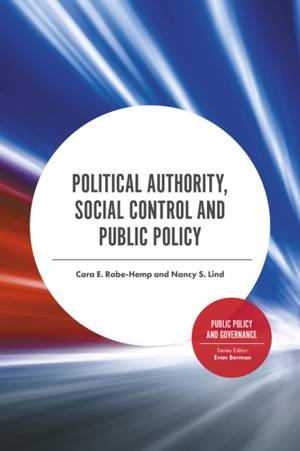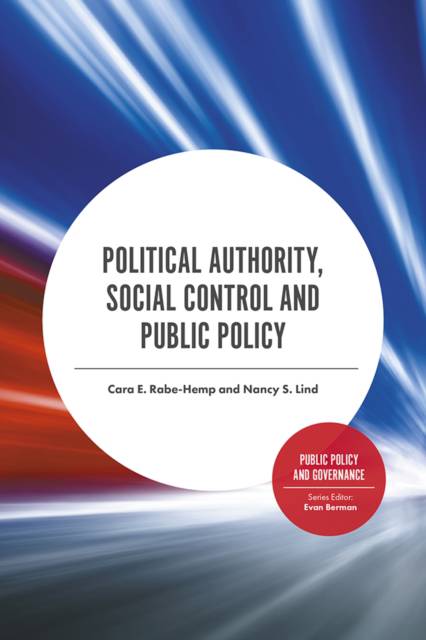
- Afhalen na 1 uur in een winkel met voorraad
- Gratis thuislevering in België vanaf € 30
- Ruim aanbod met 7 miljoen producten
- Afhalen na 1 uur in een winkel met voorraad
- Gratis thuislevering in België vanaf € 30
- Ruim aanbod met 7 miljoen producten
Zoeken
Political Authority, Social Control and Public Policy
€ 180,45
+ 360 punten
Omschrijving
Political movements and citizens across the globe are increasingly challenging the traditional ways in which political authorities and governing bodies establish and maintain social control. This edited collection examines the intersections of social control, political authority and public policy. Each chapter provides an important insight into the key elements needed to understand the role of governance in establishing and maintaining social control through law and public policymaking. Close attention is paid to the roles of surveillance and dissent as tools for both establishing and disrupting the social control of political institutions. This collection examines the vast implications of increased participation in governance by citizens through dissent, revealing the ways in which this represents both a disruption of social control and a mechanism for increased accountability through surveillance and media. Through its examination of issues such as police militarization, police legitimacy, religion and the state, immigration, mental health policy, privacy and surveillance, and mass media and social control in a post-truth environment, this collection will prove invaluable for researchers, policy makers and practitioners alike.
Specificaties
Betrokkenen
- Uitgeverij:
Inhoud
- Aantal bladzijden:
- 304
- Taal:
- Engels
- Reeks:
Eigenschappen
- Productcode (EAN):
- 9781787560499
- Verschijningsdatum:
- 4/07/2019
- Uitvoering:
- Hardcover
- Formaat:
- Genaaid
- Afmetingen:
- 157 mm x 231 mm
- Gewicht:
- 521 g

Alleen bij Standaard Boekhandel
+ 360 punten op je klantenkaart van Standaard Boekhandel
Beoordelingen
We publiceren alleen reviews die voldoen aan de voorwaarden voor reviews. Bekijk onze voorwaarden voor reviews.






